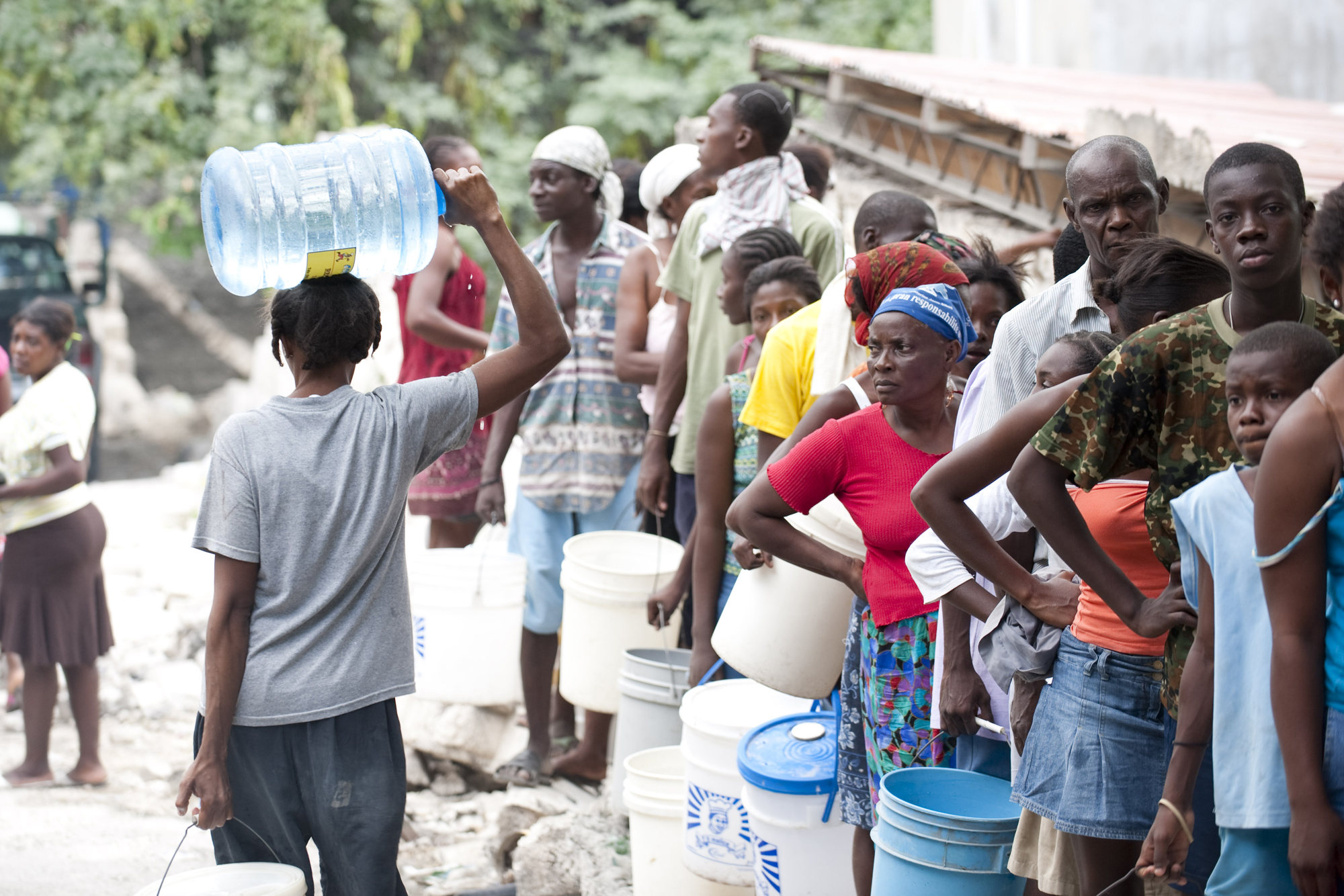
NASHVILLE, Tenn. (BP)–The Southern Baptist Disaster Relief assessment team in Haiti not only has been able to deliver much-needed relief supplies to ministry partners in Haiti, but also identified significant needs Southern Baptists can meet and established supply routes for relief supplies, said Jeff Palmer, executive director of Baptist Global Response.
The five-member SBDR team returned to the United States Jan. 25, Palmer said. The following day, they and a four-member Florida Baptist Convention assessment team will participate in a conference call with members of the Southern Baptist Disaster Relief Network to chart out a strategy for short- and long-term projects in the island nation ravaged by the Jan. 12 earthquake.
“The [SBDR] team was able to deliver supplies to a clinic in Port-au-Prince on Jan. 22 and then connect with five pastors with the Haitian Baptist Convention to talk about needs those pastors were aware of in the area surrounding the city,” Palmer said. “On Jan. 24, they were back in the Dominican Republic to explore ministry options with Baptist leadership there.
“While in Haiti, the team was able to establish logistics for supply routes, meet with local Baptist partners and come up with response plans and coordinate with government and NGO groups for future collaboration,” Palmer said. “They also determined three or four possible locations for initial medical teams working through local church ministry partners. They also identified logistical concerns — like housing, transportation, translators and security — that will need to be provided for future volunteers.”
(For a recap from the Florida Baptist assessment team, see http://bpnews.net/BPnews.asp?ID=32131.)
Jim Brown, a member of the SBDR assessment team and U.S. director for Baptist Global Response, said delivering supplies to the medical clinic was a powerful moment.
“The high point was the quick purchase and delivery of $12,000 worth of baby formula needs. What a huge blessing this was to those on the front lines, working desperately to save the lives of children,” Brown wrote in a Jan. 23 e-mail. “Many tears were shared with them when we showed up and later when we prayed with them.
“I would ask all of us to pray for a Dominican believer named Olmy, who is coordinating this medical clinic,” Brown added. “Her prayer is that not only will her ministry be a blessing to those dear little ones, but that it will also bring special healing amongst believers from Haiti and the Dominican Republic.”
The meeting with the Haitian pastors identified several specific needs Southern Baptists can help with, Brown noted.
“They shared with us the extent of damage they are aware of in greater Port-au-Prince area and shared with us needs that included temporary shelter for an orphanage with 40 children, medical clinics, re-establishing schools and church clean-up. We also discussed the need for trauma counseling. People are still sleeping outside and many are about to crack because of it.”
In the Haitian capital, the grim work of recovery continues. Haiti’s communications minister told reporters Jan. 24 that more than 150,000 bodies have been buried in mass graves north of Port-au-Prince, but thousands more are believed to have died in outlying areas such as the city of Jacmel.
At the same time, however, spirits were buoyed in the capital as work crews pulled a few more survivors from the rubble — even as rescue efforts were being halted. Wismond Exantus Jean-Pierre, a 22-year-old cashier at the Hotel Napoli, was pulled from the remains of the hotel Jan. 23 — 11 days after the earthquake struck the city. A day earlier, another 22-year-old man and an 84-year-old woman were found alive.
“I am here today because God wants it,” the second 22-year-old man told a reporter.
Relief and reconstruction efforts will benefit from improvements being made in Haiti’s damaged infrastructure, Palmer noted.
“The main pier at Port-au-Prince and the airport are open and functioning, allowing much-needed aid to arrive,” Palmer said. “At the airport now, 150 planes can land per day and 250 containers can arrive per day at the seaport. New roads have been made to facilitate transportation and the best route for overland goods still seems to be from the Dominican Republic.”
The World Food Program is feeding 200,000 people per day, but in a city where an estimated 609,000 people are homeless, much more is needed, Palmer added.
–30–
Mark Kelly is an assistant editor with Baptist Press. Learn more about Baptist Global Response on www.gobgr.org and follow updates on twitter.com/GoBGR .
Southern Baptists can contribute to “Haiti Earthquake Disaster Relief” through their local church or directly to their state convention, the North American Mission Board (www.namb.net) or the International Mission Board (www.imb.org):
— Initial funding for the relief effort will come from the International Mission Board’s disaster relief fund. Contributions can be made online, www.imb.org, or by mail, International Mission Board, P.O. Box 6767, Richmond, VA 23230.
— The North American Mission Board has set up a Haiti disaster relief fund that will direct money to state conventions and other Southern Baptists who are doing relief work in Haiti. Donations may be made online, www.NAMB.net, by phone, 1-866-407-6262, or by mail, North American Mission Board, P.O. Box 116543, Atlanta, GA 30368-6543. Make checks payable to “Haiti Disaster Relief Fund/NAMB.”
Regardless of the SBC channel, all funds received for this purpose will go to relief efforts; none will be used for administrative costs.

















